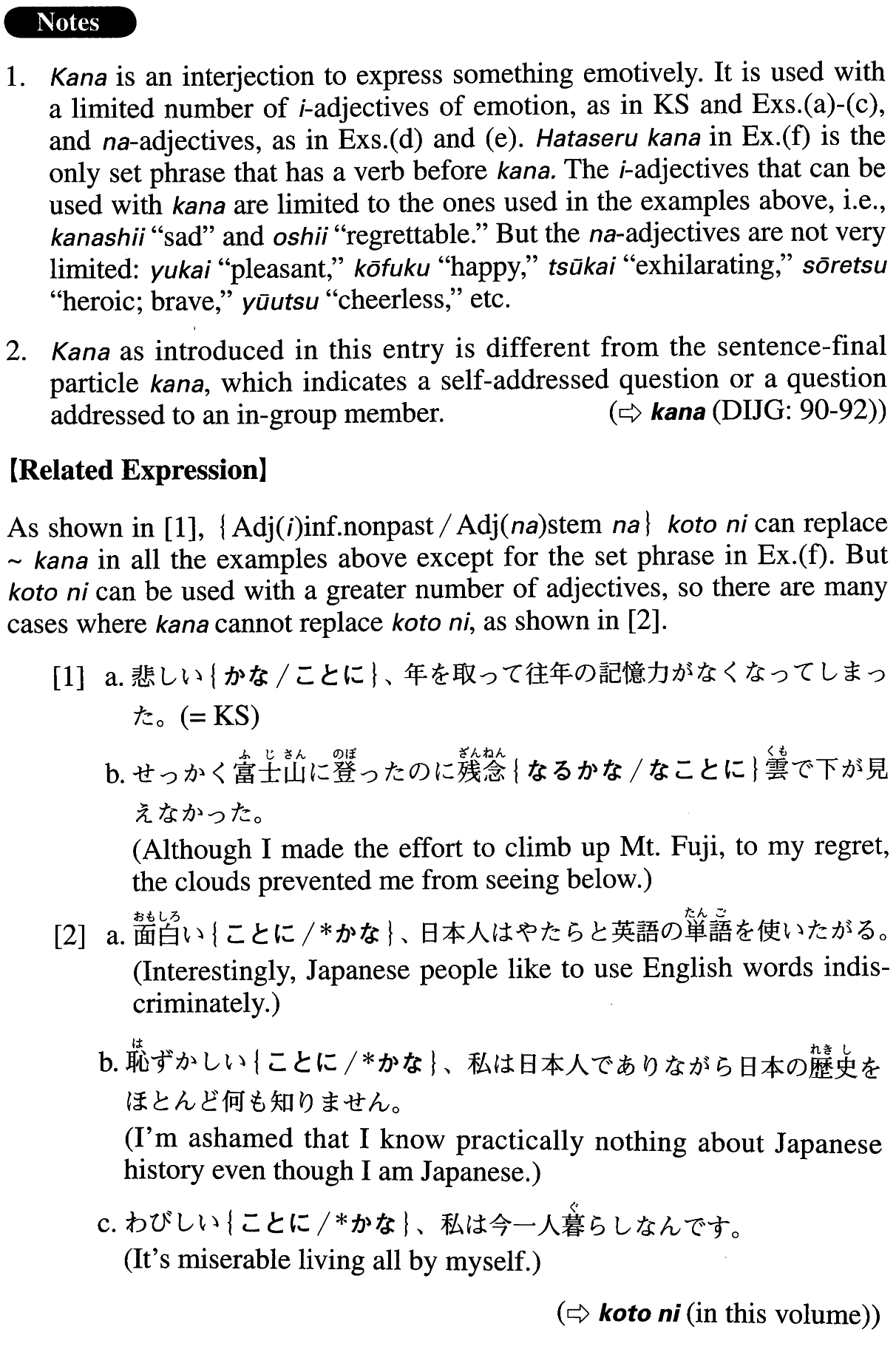
ホーム → 文法 → DoJG main menu → 上級編 → Advanced Page 185
Interjection (usually used in formal writing and formal speech)
| An interjection that expresses deep felt emotion. | How~ !; what a(n)~ !; to my/our~; it is~ that |
| 【Related Expression: ことに】 | |
(ks). 悲しいかな、年を取って往年の記憶力がなくなってしまった。
How sad (it is) that I no longer have as strong a memory as I had in my younger days.
| (i)Adjective い informal nonpast | かな | Where Adjective い=emotive adjective |
| 惜しいかな | How regrettable! | |
| (ii)Adjective な stem | なるかな | |
| 壮大なるかな | How spectacular! |
(a). 悲しいかな、自分の能力を過大評価する人間がいる。
It's so sad that there are people who overestimate their ability.
(b). インターネットを使うといろいろ面白いことが分かるそうですが、惜しいかな、私はコンピュータを買うお金がないんです。
They say that you can find out many interesting things if you use the Internet, but, to my great regret, I don't have the money to buy a computer.
(c). 画面では絵も動きます。チャットもできます。惜しいかな、全部英語ですが。
On the screen, pictures move, and you can chat, too. Regrettably, everything is in English.
(d). 秋の訪れを知ると共に、大空は広大なるかなと驚く。
With the coming of autumn, I am astonished by how broad the sky is.
(e). みんな退職後の生活の甘いイメージを抱いている。しかし、残念なるかな、現実には、熟年離婚や体の不調にさいなまれている。
Everybody has a rosy image of post-retirement life. But, to our great regret, the reality is not as it seems; people are vexed by "vintage year divorce" and poor physical condition.
(f). 途中に教会があったので期待して入ってみると、果たせるかな、クリスマス礼拝で荘厳な雰囲気であった。
There was a church on my way, so I entered it, hoping (for a feeling of Christmas). Just as I expected, there was a solemn atmosphere for the Christmas service.
